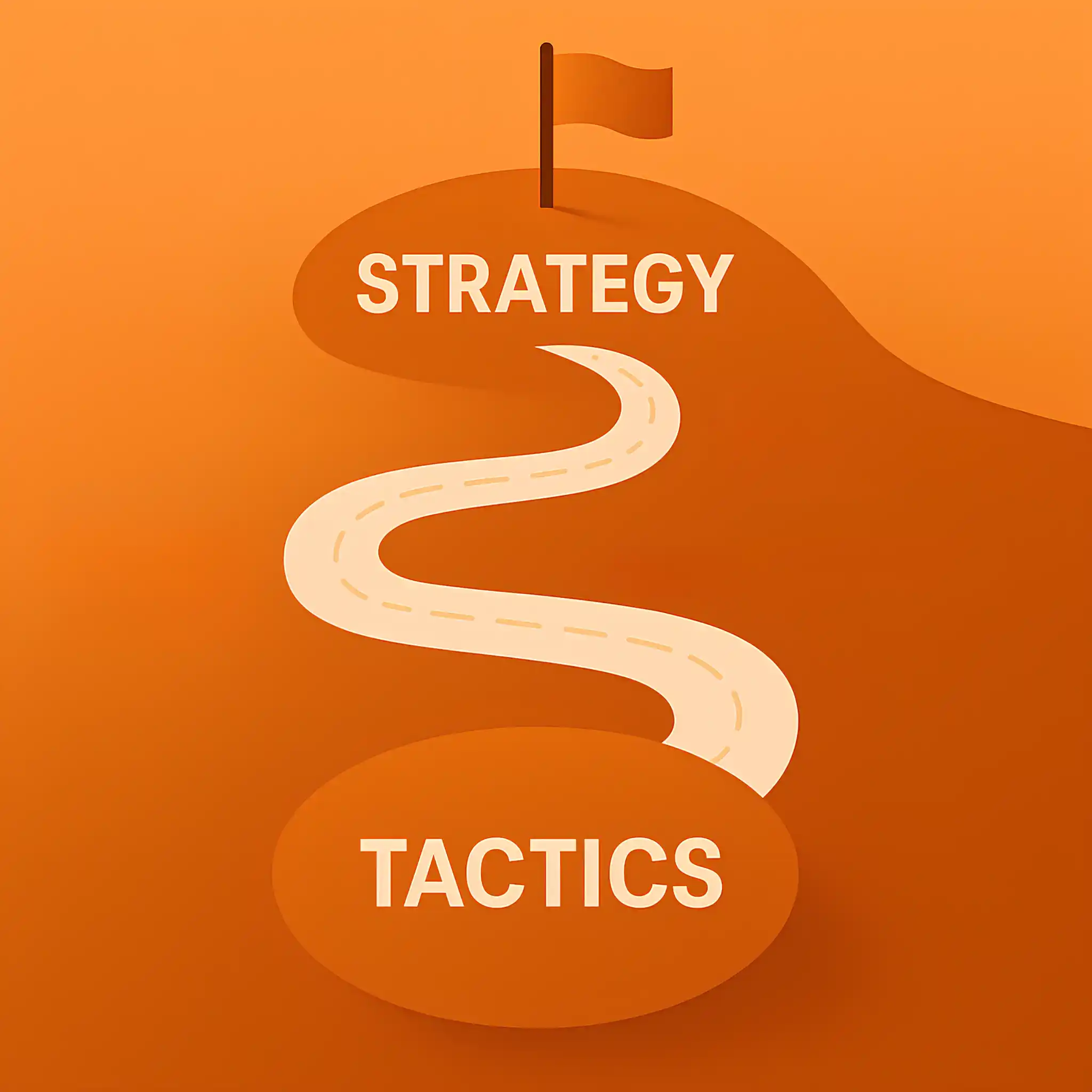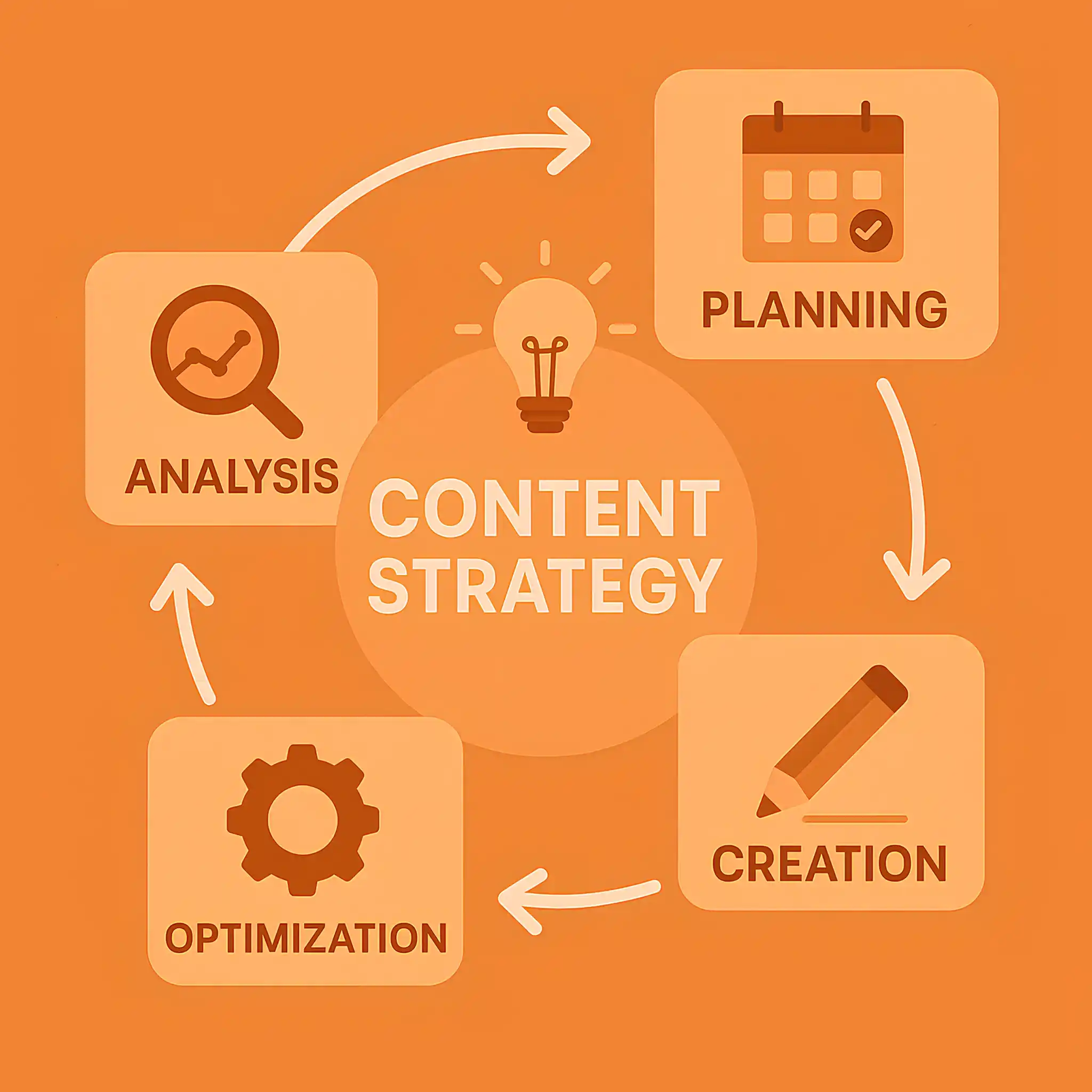
by: SEO Strategist
Ashot Nanayan
Ashot Nanayan is the CEO and Founder of DWI and a seasoned SEO strategist. With a proven track record of...
All Articles by Ashot Nanayan
June 30, 2025
8 min. read
An SEO consultant is someone you hire from outside your company to give expert advice on how to improve your website’s search performance. Unlike an in-house SEO expert who works full-time for your business, a consultant usually works part-time, project-based, or on a short-term contract.
Their job is to look at your current SEO, find problems, give you a clear plan, and sometimes help your team carry it out, but they’re not part of your daily staff. They bring an outside perspective and often have experience working with many different websites or industries.
Over time, I actively provide one-on-one SEO consultations for well-known companies, from B2B and SaaS brands to healthcare businesses. Sometimes under my own name, sometimes through my agency, Digital World Institute.
Trust me, the same issues come up again and again. A lot of clients confuse SEO consulting with execution. Some expect me to fix their entire SEO in a single call. Others already have an in-house team but don’t realize the value of bringing in a second opinion.
Some are stuck with outdated strategies, don’t know what’s working anymore, or are following advice from the wrong sources or cheap agencies that left a mess behind.
That’s why I’m not here just to define what an SEO consultant is, but to explain what we do, why it matters, and how to avoid wasting time and money on the wrong expectations. I’ll walk you through the most common confusions, the real role of a consultant, and how to tell when your business needs one. Intrigued? Let’s get right into it!
I already explained what an SEO consultant is, but instead of just giving you a one-line definition, I’d rather walk you through what we do in real situations. That way, you get a better picture of how this role works in practice, not just on paper.
There’s a big difference between someone who builds backlinks and someone who tells you which links to build, and why. That’s the real job of an SEO consultant. We look at the big picture, build the map, and decide which direction gets you actual results, not just traffic charts that look good in a monthly report.

For example, if a SaaS company wants to rank for the “project management software” keyword, the average SEO might start throwing keywords into blog posts and sending outreach emails for guest posts. But a real consultant steps back and asks: Is this even the right term to target? Is this commercial intent? Who’s owning that SERP? Finally, how’s your B2B SEO strategy built around your actual product-market fit?
That’s the kind of thinking that separates a strategist from a technician. Tactics without strategy are noise. An SEO consultant, if they’re worth your time, should be organizing the entire direction, not just holding the oars.
Same goes here; most freelancers or SEO agencies provide a generic report exported straight from Ahrefs, SEMrush, or whatever tool they’re using. I’m sure you’d agree with me that today, anyone with a few hours of YouTube tutorials can do that.

A real SEO consultant knows that not every issue flagged in Google Search Console matters. Not every suggestion from Ahrefs needs to be followed.
So, for example, if you’re looking for a technical SEO consultant, pay attention to what they focus on: what kind of issues they prioritize and which SEO tools they use to spot real problems beyond the usual ones.
I’m sure, if you post a job on Upwork asking for someone to fix crawl budget issues, run a log file analysis, or solve indexing problems, I doubt you’ll get more than five relevant proposals.
An SEO consultant is not your writer, your keyword intern, or your designer. High-quality content, the kind that ranks and drives conversions, usually requires multiple minds. One person might be digging into keyword opportunities, someone else may be structuring a smart content outline, and a designer could be creating visual assets to boost engagement.
That’s great. But none of that happens in the right direction without someone driving the actual strategy.

Our job is to figure out what to write and how to prioritize. For example, if you’re developing an SEO strategy for a dental clinic, you should hire an SEO consultant to analyze organic competitors, identify content gaps, and assess your chances to rank based on your current authority and SEO score.
If you want to build a killer content strategy, you shouldn’t obsess over keyword difficulty, Ahrefs DR, or other third-party metrics, and a real SEO consultant knows that.
So what I’m really saying is: an SEO consultant isn’t just a data exporter. You should know what to expect from us.
Link-building, especially when it comes to Digital PR, is one of my favorite aspects of SEO. Always has been. But unfortunately, the current state of the link-building market is a mess.
Most people are stuck in this lazy loop of buying and selling links. You’ll find link-building agencies out there offering bulk links from Private Blog Networks (PBNs), random link farms, or link exchanges, and somehow they still get clients. It’s exhausting trying to explain why that stuff might work today, but it can destroy your efforts six months later.
That’s why having someone who knows what they’re doing, someone who’s been through it, tested things, failed, learned, and finally figured out what works, is invaluable.
A real SEO consultant won’t just tell you to “build links” and leave it at that. They’ll guide you through the entire link-building strategy. I’m talking about identifying which pages to prioritize (hint: it’s not always your homepage), where your link gaps are compared to competitors, how to distribute your link-building budget, and what kind of links will move the needle.
Once you have that direction, the rest becomes much easier. The prospecting, the vetting, the outreach; it’s all very easy (just time-consuming) if you know the goal.
So yeah, when I talk about link-building guidance, I’m not giving you theory. I’m giving you the difference between a freelancer who promises “50 links in a month” and someone who helps you build authority.
If you’re a startup without an in-house SEO or even an established company noticing a sudden traffic drop, you probably need someone who can come in, look under the hood, and tell you exactly where you’re wasting time.
You also need an SEO consultant if your marketing team is doing a hundred things at once, but still can’t explain why organic traffic isn’t growing. Same goes for businesses recovering from a penalty or algorithm hit.
Even if you’re preparing for a website migration, considering an SEO consultant would be 10 times safer.
So if any of those sounds familiar, you’re not alone, and yes, it’s time to bring in someone who knows what they’re doing.
Before hiring any consultant or even an SEO agency, you need to know what they’re good at. It’s a mix of a hundred moving parts. Someone who’s brilliant at SaaS SEO might completely mess up an eCommerce site or struggle with international targeting.
If you don’t ask the right questions up front, you might hire the wrong fit and waste months going in circles. Now let’s talk about the different types you’ll come across.
These folks live in the backend of your site. They’re the ones fixing crawling issues, speeding things up, sorting messy JavaScript, or cleaning up a disaster of broken redirects.
If your traffic is stuck despite having great content and backlinks, chances are your issue is technical.
These are the people who look at your content and immediately tell you why it’s not ranking, not just based on keywords, but structure, relevance, search intent, and topical authority. They’re not here to write blog posts.
They’re focused on building topic clusters, cleaning up thin content, and helping you publish stuff that attracts traffic and builds credibility.
Most SEOs say they do link building, but very few do it well. A real link-building consultant knows how to earn links, not buy random placements on spammy blogs.
They’ll know how to pitch journalists, get into top publications, or build relationships for long-term SEO equity. If your site has great content but no authority, that’s the person you need.
If you’re running a physical business, you don’t need a full-scale SEO campaign that’s targeting broad national terms.
You need someone who understands Google Business Profiles, local packs, maps rankings, reviews, citations, all the small things that drive foot traffic or local calls.
Hiring someone who doesn’t specialize in it usually ends with your competitors outranking you five miles away.
At the enterprise level, SEO stops being tactical and starts being about coordination. You’re working with developers, editors, brand teams, compliance, and sometimes legal. These SEO consultants think in systems.
They can build workflows, guide large-scale migrations, and push change across thousands of pages without breaking things.
This is a newer one, but honestly, one of the most valuable. Fractional SEOs don’t just audit and disappear.
They embed into your team part-time, act like your head of SEO, and help drive strategy week by week. It’s ideal if you don’t want a full-time hire but still need someone senior guiding your content, links, and tech roadmap.
If you’re targeting multiple countries or languages, SEO gets a lot more complex.
An international SEO consultant knows how to prevent cannibalization across markets and make sure your UK pages don’t compete with your US ones.
If you’re stuck choosing between hiring a freelance SEO consultant or going with a full-service agency, you’re not alone. This is one of the most common points of confusion for businesses ready to invest in SEO, but unsure of who the right fit is. The answer depends on your goals, budget, and how involved you want to be. I’ve worked on both sides, and I’ve seen what works and what doesn’t. So let’s break it down clearly.
| Aspect | Freelance SEO Consultant | SEO Agency | Which to Choose? |
|---|---|---|---|
| Expertise | Deep expertise in specific areas, often hands-on | Broad expertise across disciplines, supported by a team | Depends on the complexity of your SEO needs |
| Flexibility | More adaptable to unique workflows and communication styles | Follows structured processes, less flexible with customization | Freelancer for custom setups |
| Resources | Limited resources, may manage multiple roles | Full-stack team with dedicated specialists | Agency for high-volume or complex projects |
| Cost | Typically lower upfront costs | Higher costs due to team and overhead | Freelancer for startups; agency for scaling |
| Communication | Direct communication with the expert doing the work | Account managers may relay updates | Freelancer for 1:1 clarity |
| Scalability | Harder to scale across multiple sites or brands | Easier to scale with more hands and structured systems | Agency if you're growing fast |
Freelance SEO consultants typically offer more flexible pricing. Some charge hourly, others go with monthly SEO retainers, and a few prefer per-project deals. I know freelancers who charge anywhere from $50 to $200 an hour, depending on experience, but many are open to negotiating something that fits your scope.
For example, if you’re a small local business just needing help with technical cleanup and keyword planning, a one-time project fee might save you some cash.
| Payment Model | Freelance SEO Consultant | SEO Agency | Notes |
|---|---|---|---|
| Hourly Rate | $50–$200/hour | $100–$250/hour | Freelancers vary by experience; agencies charge more due to overhead |
| Monthly Retainer | $1500–$5,000/month | $2,500–$10,000+/month | Agencies offer full service; freelancers may focus on specific tasks |
| Project-Based Pricing | $1,500–$10,000/project | $3,000–$20,000+/project | $20,000+/project Depends on scope (e.g., audits, migrations, strategy builds) |
| Performance-Based | 10%–20% of revenue growth or leads | Rare; or blended into other fees | More common with freelancers; agencies rarely offer pure performance deals |
Agencies, on the other hand, tend to be more expensive. Not because they’re greedy, but because they have more people involved: account managers, strategists, content teams, link-building specialists; you’re paying for a full-stack team.
If your budget’s tight, especially in the early stages, going with a freelancer often feels more approachable. But if you’re a mid-size brand or startup gearing up for growth and don’t want to manage five different specialists yourself, then paying extra for the agency model can make more sense long-term.
When you hire a freelance SEO consultant, you’re usually talking to the same person who’s doing the work. It’s direct. You hop on a call, discuss your goals, and that same person dives into your site, your content, and your backlinks.
I mean, if you have a question or something urgent, you’re not waiting for someone to “loop in the team.” It’s hands-on, one-on-one, and honestly, a lot of people prefer that.
With SEO agencies, it’s a completely different experience. In most cases, the person you speak with at the start, like a sales rep or account manager, is not the one running your SEO audit or building your links. There’s usually a process for this kind of stuff.
But look, that’s not necessarily bad. Agencies have teams for a reason. It’s just that, sometimes, you feel like you’re being passed from one person to another, and if the communication isn’t tight, that disconnect can slow things down or make you feel unheard.
I’ve had clients come to me after working with agencies saying, “I just want to know who’s working on my SEO.” And that’s fair. When you work with a freelancer, it’s transparent. You know exactly who’s in your site’s backend at 11 PM, organizing redirects or fixing crawl issues.
I thought this would also be worth considering. A good SEO consultant can absolutely handle complex projects, especially if they have systems and maybe a small support network. I’ve been personally handling full-site audits, content strategy, and link-building for multiple clients myself.
But let me also confess that if you suddenly need technical fixes, 30 pages of content, and 50 backlinks in a week, that’s a lot for one person to manage, and sometimes I feel very tired.
Agencies have a content team, a tech SEO person, a designer, maybe, someone on link-building outreach, someone handling reports. That kind of setup can move fast when needed, especially for eCommerce, SaaS, or enterprise sites that need different things happening at once.
That said, some freelancers partner with others behind the scenes. So don’t assume that one person means small scope. Just ask. I always tell prospects: if you need something I can’t personally take on with the same quality, I’ll either bring in someone I trust or tell you upfront.
Freelancers usually shine when you need sharp focus or deep expertise in a specific area. Some are killers at technical SEO. Others are content-first strategists. You’ll also find consultants who’ve spent years just doing link-building or local SEO, and that kind of specialization can be a game-changer, especially if your site’s stuck because of one key issue.
I’ve had clients come to me after working with full-service agencies saying, “They tried to do everything, but nothing really moved.” Sometimes you just need a specialist who lives and breathes the problem you’re facing.
Agencies, on the other hand, are built to be one-stop shops. You want someone fixing broken schema, writing product descriptions, pitching digital PR campaigns, and cleaning up internal links, at the same time? That’s what an agency structure is for.

Everything happens in parallel, and that can save a lot of time. You’re not coordinating between a writer, a dev, and an outreach person from three different time zones. It’s all under one roof.
So it depends on what you need. If you’re looking for depth, freelancers often win. If you’re looking for breadth, agencies usually take it.
This is honestly one of my favorite setups. You don’t always need a full agency, but you also don’t have to rely on one person for everything. What a lot of smart companies do is hire a freelance SEO consultant to lead strategy, and then pair that with an internal or outsourced dev team and a couple of good content writers.
That way, you get focused direction without paying agency-level fees just to route tasks through layers of management.

I’ve worked with clients where I owned the roadmap, ran technical audits, guided content planning, and then their in-house writer or dev handled implementation.
It worked beautifully: fast execution, and total clarity on who’s doing what. I think this way, you control everything without having to become an SEO expert yourself. You still get expert strategy, but you’re not stuck paying for extra roles you don’t really need.
You hear “SEO consultant,” “SEO coach,” and “SEO manager” like they’re the same thing, but they’re really not. The roles can overlap, sure, but the mindset behind each one is totally different.
| Category | SEO Consultant | SEO Coach | SEO Manager |
|---|---|---|---|
| Role Focus | Executes strategy or provides expert audits | Teaches you how to build and run your own SEO | Oversees ongoing SEO operations in-house |
| Involvement | Project-based or short-term campaigns | One-on-one or group guidance and mentoring | Long-term, full-time role within a company |
| Best For | Companies needing execution or external audits | Individuals or teams learning SEO | Businesses needing daily hands-on management |
| Cost Range | $1,500–$5,000/project | $100–$300/hour (or program-based) | $60K–$120K/year (full-time salary) |
So, today you have already heard a lot about SEO consultants and their role. Now compare that to an SEO coach. This one’s more like a personal trainer for your SEO.
Let’s say you’re a business owner or a marketer who wants to learn SEO, not just outsource it. A coach is there to teach you. They’re on calls with you, reviewing your work, guiding you through the process. It’s more educational.
They’re not fixing your site themselves, but they’re helping you understand how to do it right. It’s slower, more hands-on, and honestly, pretty valuable if you want to build long-term skills.
An SEO manager is someone on your internal team, or maybe an external hire, who’s fully integrated into your operations. They’re working with developers, content writers, maybe designers, and they’re responsible for making sure SEO tasks actually get done. They’re the ones managing tools, deadlines, reporting to the CEO, and monitoring daily activities.
When you’re looking to hire an SEO consultant, don’t just review their resume or ask how many years they’ve been in the industry. Assess their analytical thinking, how they use AI to automate SEO, how they break down problems, how they research, and whether they can connect the dots between strategy, execution, and business objectives.
One skill I always say separates an average consultant from a great one is research. I don’t mean just Googling things, I’m talking about knowing where to dig, what to question, and how to use tools ( especially AI tools).
These days, if a consultant isn’t using ChatGPT for SEO, Perplexity, DeepSeek, or Claude to test angles, explore search intent patterns, or just pressure-test their own ideas, at least that’s not good.
I’ll never forget the first time I got hired in-house. In the interview, the CEO asked me a question that hit me later. He said, “If you’re stuck and don’t know something, who do you ask?”
I said, “My manager, or maybe my teammates.” That felt like the right answer at the time. But then he looked at me, smiled, and said, “Why not Google?” I swear, I still think about that moment. That one line changed the way I approached everything.
Clients come to me after spending thousands on someone who promised the moon, increased branded traffic (I’m joking, haha), and disappeared when rankings dropped.
I think one of the biggest red flags is when someone guarantees first-page rankings. That might sound very attractive, but no one controls Google. If someone promises you exact rankings or says things like “you’ll be ranking #1 in two weeks,” they’re selling confidence, not results.
Another one, you ask how they’re going to improve your site, and you get unclear answers like “we have our methods” or “just trust us, we’ve done this for years.” A good SEO consultant should want you to understand what’s happening, even if you don’t dive deep into every technical detail.
There are many red flags, like no portfolio or case studies, lack of transparency or ownership, black-hat or link scheme tactics, etc, and I could talk about them for hours, but those are at the top of my list.
Most SEO consultants charge between $100 to $250 per hour in the US, while project-based pricing can range from $1,500 to over $10,000, depending on the scope.
Monthly retainers usually fall between $1500 and $5,000 for ongoing work with real impact.
Here is the estimated SEO consultant costs by top U.S. states based on local demand, competition, and cost of living:
| State | Hourly Rate (Avg.) | Monthly Retainer | Project-Based Pricing |
|---|---|---|---|
| California | $100–$200/hr | $2,500–$8,000/month | $3,000–$15,000+ |
| New York | $100–$180/hr | $2,000–$7,500/month | $3,000–$12,000+ |
| Texas | $75–$150/hr | $1,500–$5,000/month | $2,000–$10,000 |
| Florida | $70–$140/hr | $1,500–$4,500/month | $2,000–$8,000 |
| Illinois | $80–$160/hr | $1,800–$6,000/month | $2,500–$10,000 |
| Washington | $90–$170/hr | $2,000–$6,500/month | $2,500–$11,000 |
| Georgia | $70–$130/hr | $1,200–$4,000/month | $1,800–$7,000 |
Now, let’s get into the details.
There are three common ways consultants charge: hourly, per project, or on a monthly retainer. Hourly might sound flexible, but it’s usually best for short-term help, like a quick audit or consulting session.
Project-based pricing works well when there’s a clear beginning and end, like fixing site structure or setting up your SEO from scratch. Retainers are for brands that want consistent growth, month after month, without starting over every time.
Here’s table comparing estimated SEO consultant costs by country, covering the UK, India, Philippines, Russia, and Australia (as a strong, developed English-speaking market outside the US):
| Country | Hourly Rate (Avg.) | Monthly Retainer | Project-Based Pricing |
|---|---|---|---|
| United Kingdom | £60–£120/hr ($75–$150) | £1,200–£4,500/month | £2,000–£10,000 |
| India | $15–$60/hr | $500–$2,000/month | $800–$5,000 |
| Philippines | $10–$40/hr | $400–$1,500/month | $500–$3,000 |
| Russia | $20–$70/hr | $600–$2,500/month | $1,000–$6,000 |
| Australia | $80–$150/hr | $1,800–$6,000/month | $2,500–$12,000 |
I’ve worked with clients under all three models, but prefer monthly retainers.
Pricing also shifts depending on where your consultant is based. US and UK rates are typically on the higher end. If you’re hiring from India or Eastern Europe, you’ll likely pay less, but that doesn’t always mean lower quality.
It comes down to experience, communication, and whether the consultant understands your business.
Here are the top factors that influence SEO consulting costs, along with estimated percentage impact on pricing.
A lot goes into SEO pricing. A five-page brochure site will cost way less than a 5,000-page eCommerce store. If you’re in a competitive industry, expect to pay more. If you’re in a rush, well, expect to pay even more. The more experienced the consultant, the less trouble there is, and that saves time and money in the long run.
Is it worth it? If you’re looking for real SEO ROI: organic traffic, qualified leads, higher rankings without wasting money on ads, then yes, it’s worth every penny.
Before you even think about hiring, you need to get clear on what you’re trying to solve. Are you trying to grow traffic to your blog? Do you need help with technical SEO? Or are you stuck deciding between SEO in-house vs outsourcing? Without clarity on your objectives, you’ll just waste time going in circles.
Before writing this, I went down a bit of a rabbit hole, scrolling through founder groups, SEO subreddits, and private communities, just to see what real people were saying about hiring SEO consultants.
Once that part’s sorted, review experience, not just the years, but the results. I always prefer hiring through platforms like Upwork or Growthmentor, because at least there, you get a trail of verified client feedback. I’ve hired this way myself, and it beats random cold outreach from someone who claims to have “ranked hundreds of sites.” Show me the work.
During your call, don’t ask blurry questions. Ask what they’d do in your exact situation. How would they approach your current issues? What do they think of outsourcing SEO for a small team? Can they explain what’s wrong with your current site structure, without sounding like they’re reading from a textbook?
Please, always test with a paid trial. Even a small audit or one-page SEO review. I don’t care how confident someone sounds; if they can’t prove they’re worth it with a bit of real work, you’re better off looking elsewhere.
SEO is in a mess right now. I won’t deny that. Finding a reliable SEO consultant won’t be simple, even if you have a job posting on Upwork, LinkedIn, or wherever else people look these days. You can spend hours filtering through profiles, promises, and unclear sentences, only to realize no one’s saying anything real.
Today, I tried to break it down for you, not just what an SEO consultant does, but what matters when you’re hiring one.
However, what works today might be irrelevant tomorrow. That’s the reality. The only way to stay ahead is to keep learning, questioning, and adapting. If you found this helpful, go read the rest of our articles. So if you’re serious about SEO, don’t stop here. Keep going.